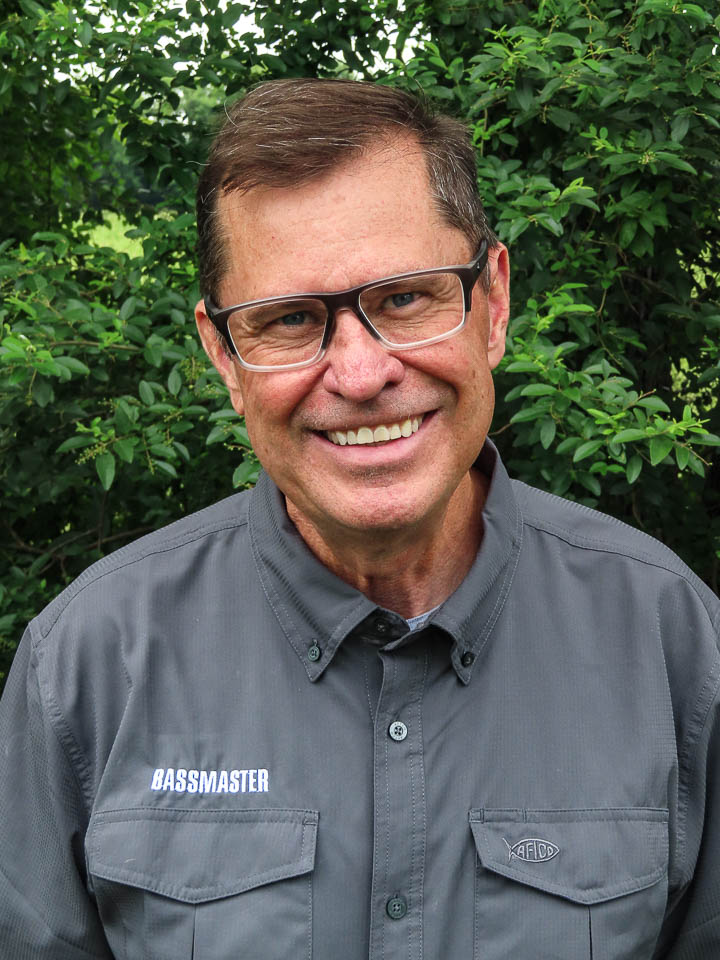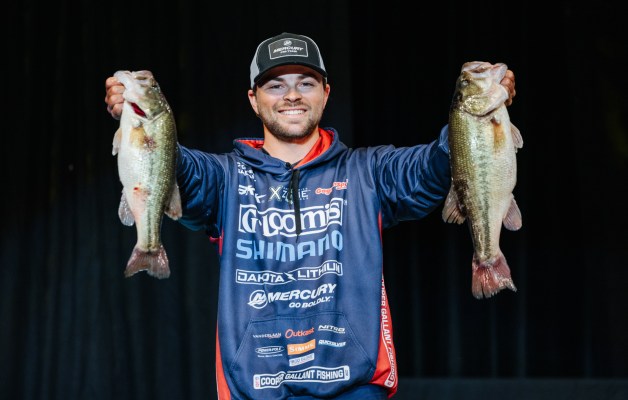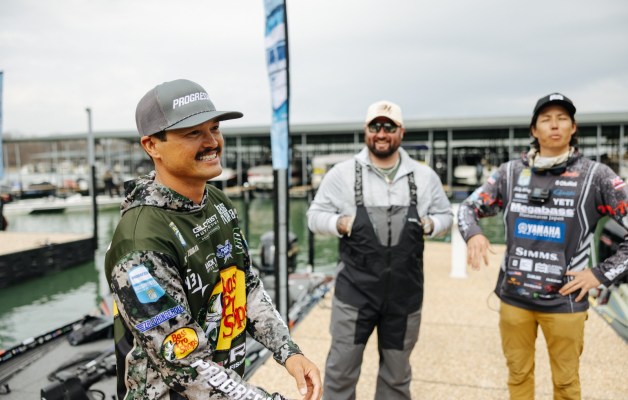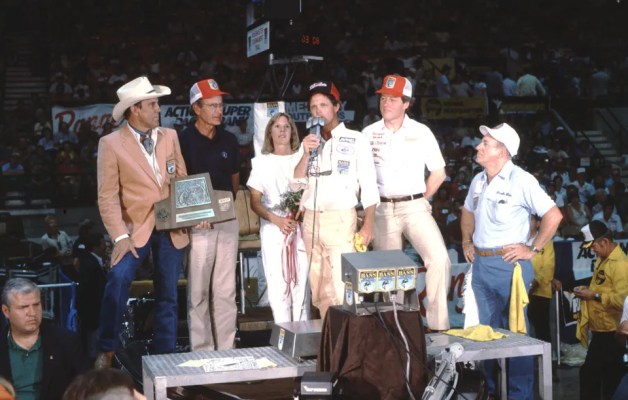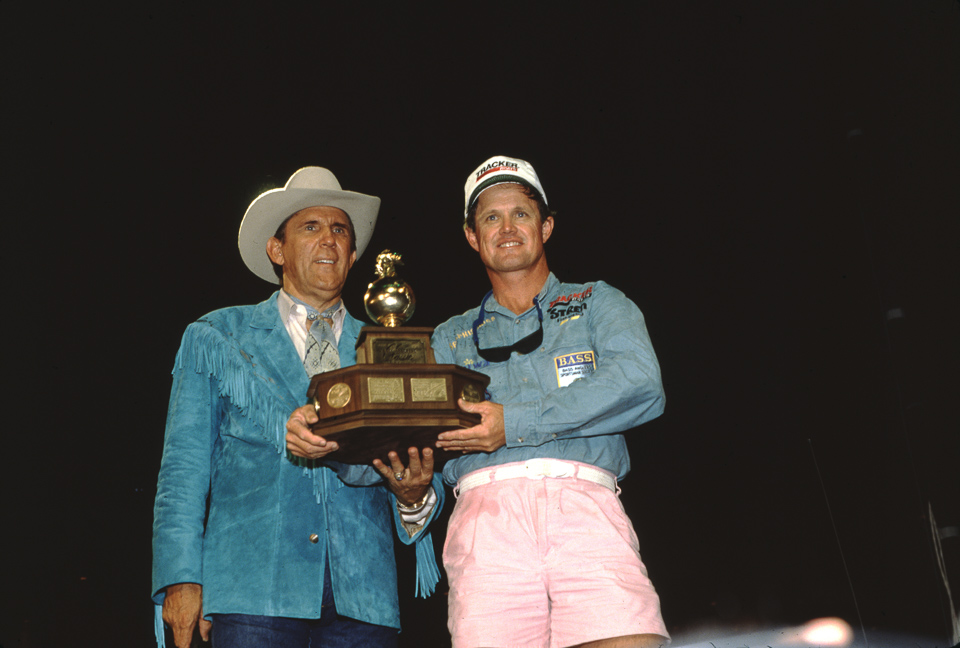
“I always believed in the Zone. Just like other sports where you visualize the win. There is also one in fishing, where you visualize all the casts and the right ones to make. It was like I was in another dimension being in the most surreal feeling I’d ever had in fishing.” – Rick Clunn, describing the final day of his unprecedented fourth Classic win
Those are heavy words coming from bass fishing’s greatest intellect, Rick Clunn, who staged a dramatic and nearly improbable come-from-behind win at the 1990 Bassmaster Classic on the James River.
Clunn, ignored and basically forgotten after two days of mediocre competition, charged from nearly 10 pounds behind to win the Classic with a three-day winning weight of 34 pounds, 5 ounces.
Clunn didn’t just win. He set new standards for fishing excellence, mental determination and just plain high-stakes drama. His avowed goal for Classic XX: “I came here to win the tournament, not just finish high.”
To that end, Clunn stuck with his game plan and on the final day weighed in 18-7, the heaviest limit of any three James River Classics held in 1988, 1989 and 1990, in Richmond, Va.
Clunn’s tactic was equally as off script as his win. He made short casts with a crankbait into the gnarly roots of cypress trees in the mouths of four James tributaries. Ironically, Clunn first discovered the pattern there in 1988 late in the competition, and bad weather allowed him only one day to refine it the next year. Those experiences led him to actually design a lure — a shallower-running squarebill crankbait made of cedar — that would score the win.
“It was a pattern and lure design that was three years in the making, and the only place that I could refine it was on that river,” Clunn said.
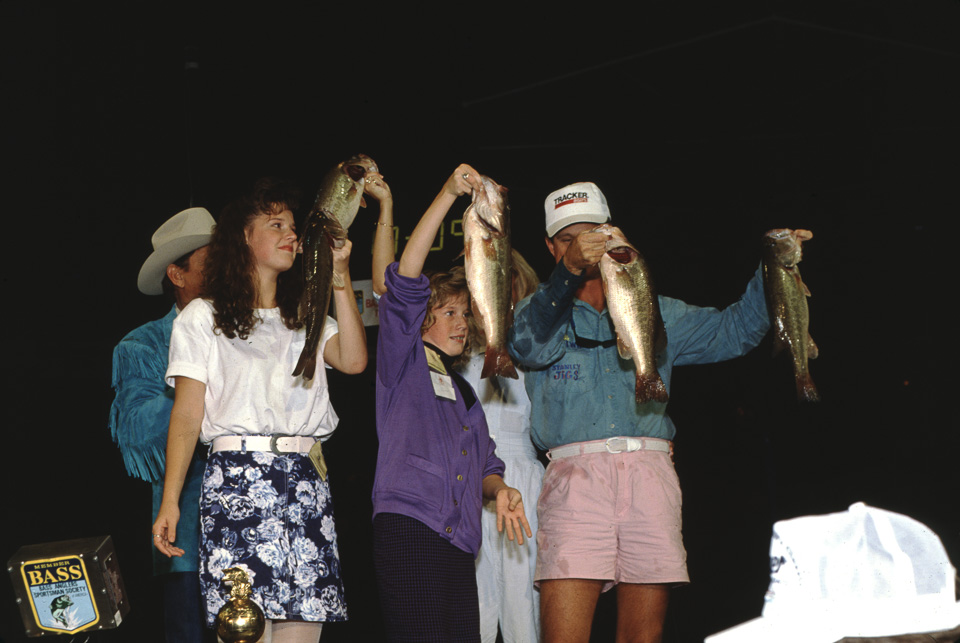
Knowing he had the lure, the location and the technique to win the Classic, Clunn worked the mouths of the creeks in various tidal stages, a challenge in itself. For two days, it looked as if Clunn may have overestimated his bass, but he was determined to stay with them.
Clunn started the Classic in 14th place and moved to 10th on the second day with 15-14 in rather unremarkable fashion. The Zen moment occurred on the final day when everyone counted Clunn out except him.
Clunn knew he needed five big bass to win it, and he relied on his deep mental prowess to bring it to reality. That came by 9:15 a.m. when Clunn had a limit, spending the remainder of the day culling bass.
“What was surreal was the tide stayed low all day, allowing me to make the right casts to the cypress trees with the crankbait,” Clunn said. “Otherwise, had it fluctuated, there was no way I’d caught the 18 pounds.”
Clunn had modified the RC1 squarebill after previously discovering it fished too deep and would dig into the bottom on the low tide, when the bass were most active. He used the shallower-running version in 1990, and it made the difference.
Another rarely told story occurred on the second day, when Clunn’s press angler from the Chicago Tribune was a baseball statistician for the Chicago Cubs. The writer barely said a word to Clunn the entire time on the water, instead taking copious notes. On the drive back to Richmond, the writer opened up, having recorded every one of the 2,343 casts made by Clunn on that day. Of those casts, Clunn had 25 strikes and caught 24 bass. He even noted that Clunn got hung up 15 times. Clunn had to hit the cypress tree to get a bite, and of those hang-ups he only needed to move the boat four times to free the bait.
“The mathematics of it amazed me,” Clunn said. “Initially, it sounded like I had an incredible day of fishing, catching 24 bass. Then it hit me. I was making nearly 100 casts per bite, and that’s a pretty poor percentage. I was throwing to cypress trees on virtually every cast, so I was not making purely random casts. I knew the fish were using those trees.”
Clunn ranks the win as one of his most memorable, as his daughters Brooke and Cortney were there to witness it.
“It was the first time my daughters truly understood what I did for a living, and it’s one of my career highlights and greatest memories to have had them witness,” Clunn said.
In their younger years, Brooke and Cortney only knew their father left home to go fishing, never returning at the end of a workday like their friends’ parents. They even questioned when Clunn was going to get a “real job.”
“I get emotional thinking about it now,” said Cortney, who 11 years old at the time. “It made us fully understand the magnitude of what he’d done all those years, having already achieved it three other times.”

